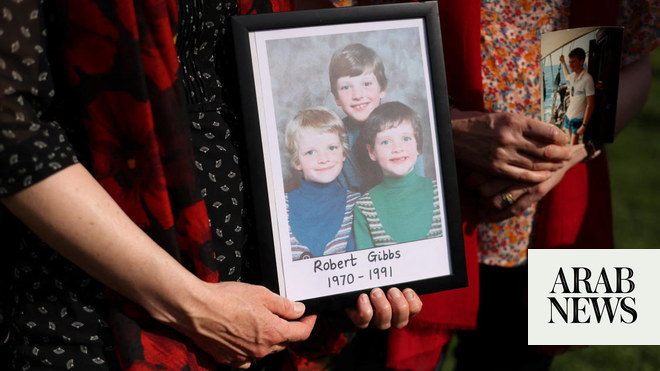
The Manchester Arena suicide bomber Salman Abedi should have been identified as a security threat on the night of the attack, a public inquiry has found.
Sir John Saunders, chair of the inquiry, found there were “serious shortcomings” and a number of missed opportunities by those in charge of security to prevent the May 2017 attack. Saunders said he considered it likely Abedi would still have detonated his device if confronted, “but the loss of life and injury is highly likely to have been less”. The attack killed 22 people and injured hundreds more.
Manchester-born Abedi, of Libyan descent, walked across the foyer of the venue and detonated his shrapnel-laden device, packed into his bulging rucksack, at 10.31pm on 22 May, just as thousands of people, including many children, left an Ariana Grande concert.
Hearings at the public inquiry into the circumstances leading up to and surrounding the attack have been ongoing in the city since September last year.
Chairing the inquiry in Manchester magistrates court, Saunders said that there had been serious shortcomings in the security provided, and pinpointed mistakes and failings by certain individuals. The missed opportunities included:
A member of the public, Christopher Wild, being “fobbed off” when he reported Abedi to Showsec stewards 15 minutes before the explosion.
A further, connected chance to identify Abedi as suspicious was missed very shortly after, just eight minutes before the attack, when another Showsec steward tried to raise the alarm to the control room but could not get through on his radio.
A CCTV blind spot, which allowed Abedi to carry out his “hostile reconnaissance” trips to the arena without raising suspicion before he detonated the bomb.
A missed opportunity to identify Abedi as a potential threat by Showsec stewards who had not been adequately trained.
The failure to carry out an adequate patrol by Showsec staff shortly before the concert ended, which would have spotted Abedi.
Finally, the report said, uniformed officers from British Transport Police were tasked to patrol Victoria station, below the arena, including the City Room of the arena, but when the bomb was detonated there were no BTP officers in the foyer.
As families of some of those killed sat in the hearing room, Saunders warned that a terrorist threat remained in the UK. He said that although he was not looking for “scapegoats”, having considered the evidence he had reached the conclusion that some at the venue had fallen below a proper standard in carrying out their important role of protecting concertgoers.
“The security arrangements for the Manchester Arena should have prevented or minimised the devastating impact of the attack. They failed to do so. There were a number of opportunities which were missed, leading to this failure. Everybody concerned with security at the Arena should have been doing their job in the knowledge that a terrorist attack might occur on that night. They weren’t. No one believed it could happen to them.
“It was the responsibility of managers to ensure that the message that the threat level was ‘severe’ was refreshed in such a way that people did not become complacent about it,” he added.
June Tron, whose son Philip was killed in the attack, said she hoped the inquiry would ensure that lessons were learned and that laws were introduced to ensure the public could attend large events in the confidence they would have the best possible protection.
“Every life taken in this horrendous attack has destroyed the lives of those close to them, and like the many other families affected we don’t want anyone else to go through what we have following the loss of Philip.
“It has become clear that was not the case for Philip, 21 others who also lost their lives, and the hundreds more who were seriously injured or left traumatised by what happened. Philip and everybody else in the vicinity of the Arena that night was placed at risk. That is very hard to accept and understand,” she said.
Paul Hett, the father of Martyn Hett, 29, who also died in the bombing, said the inquiry had strongly demonstrated that there was an inexcusable catalogue of failings. “We entrusted the lives of our loved ones to organisations who we believed had a duty of care to protect them. This inquiry has rightly found that we were failed by them on every level. This atrocity should – and could – have been prevented, and 22 people would not have lost their lives,” he said.
Neil Hudgell, of Hudgell Solicitors, who represented a number of the bereaved families, said the failings made the venue an attractive target for a terrorist attack.
“Significantly, at the time, despite the country’s national threat level for a terrorist attack being classed as severe, the government did not have laws in place to enforce venues such as the Manchester Arena and other concert venues to take appropriate counter-terrorism measures in such an environment. As a result of these combined failings, thousands of young people who attended the concert on that night were left an open and vulnerable target for terrorists,” he said.
Responding to the report, SMG, operator of the Manchester Arena, said it was “truly sorry”. The security operator Showsec said “lessons had been learned”, and the BTP chief constable, Lucy D’Orsi, said the force was carefully reviewing the findings.
Meanwhile, the home secretary, Priti Patel, thanked Saunders for his “extremely thorough examination” and said the government would carefully consider the chair’s conclusions and recommendations.












